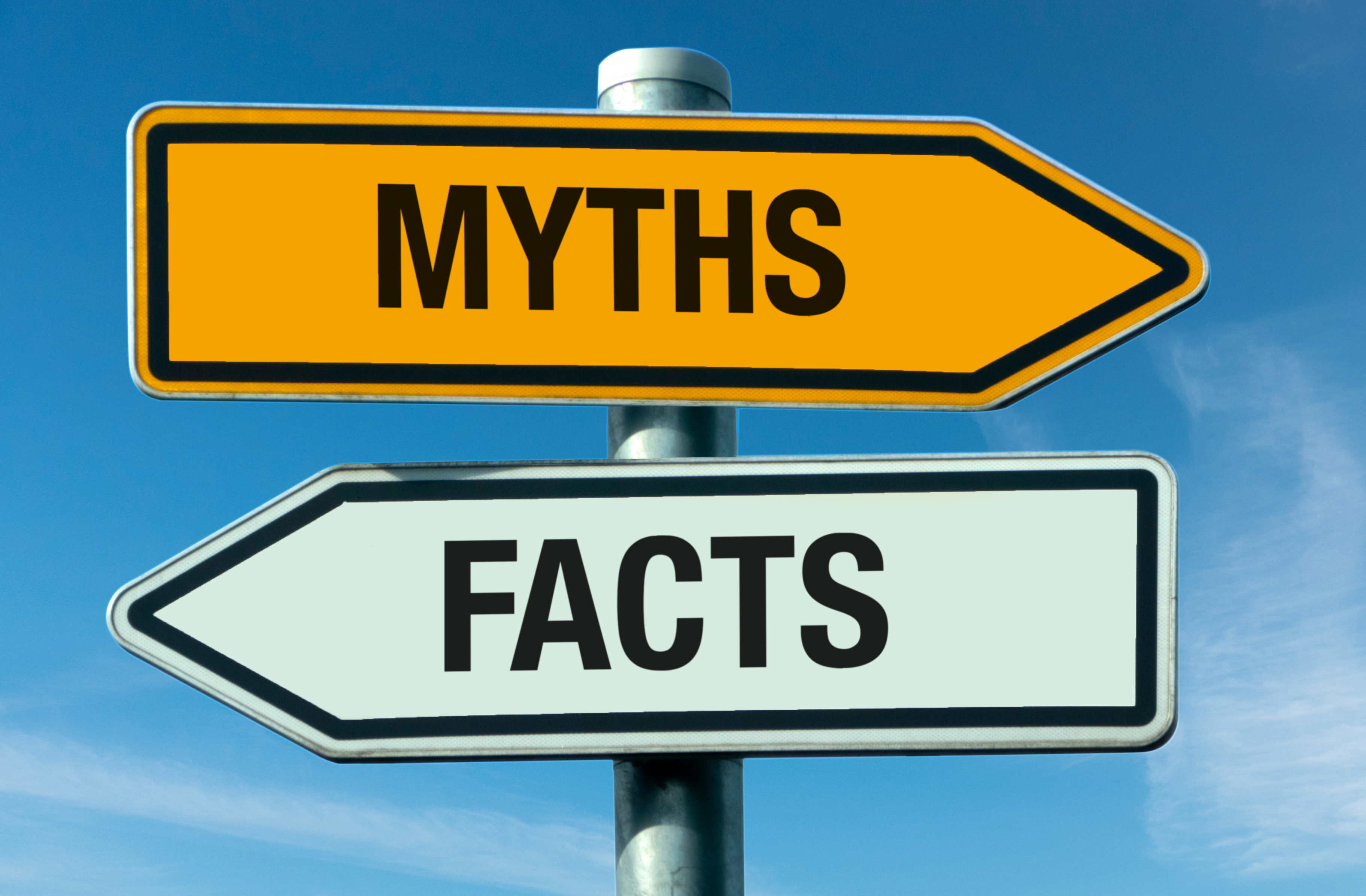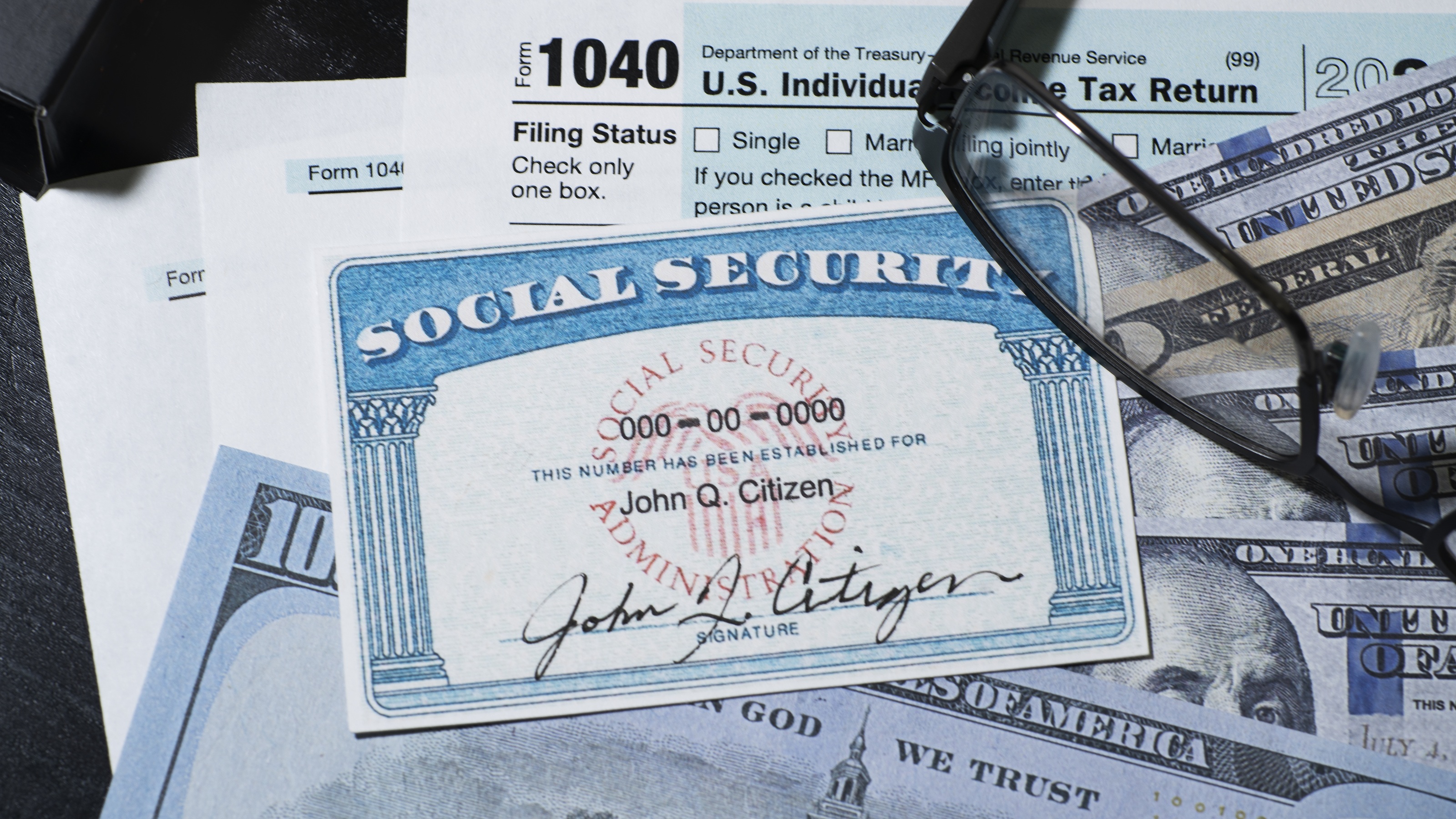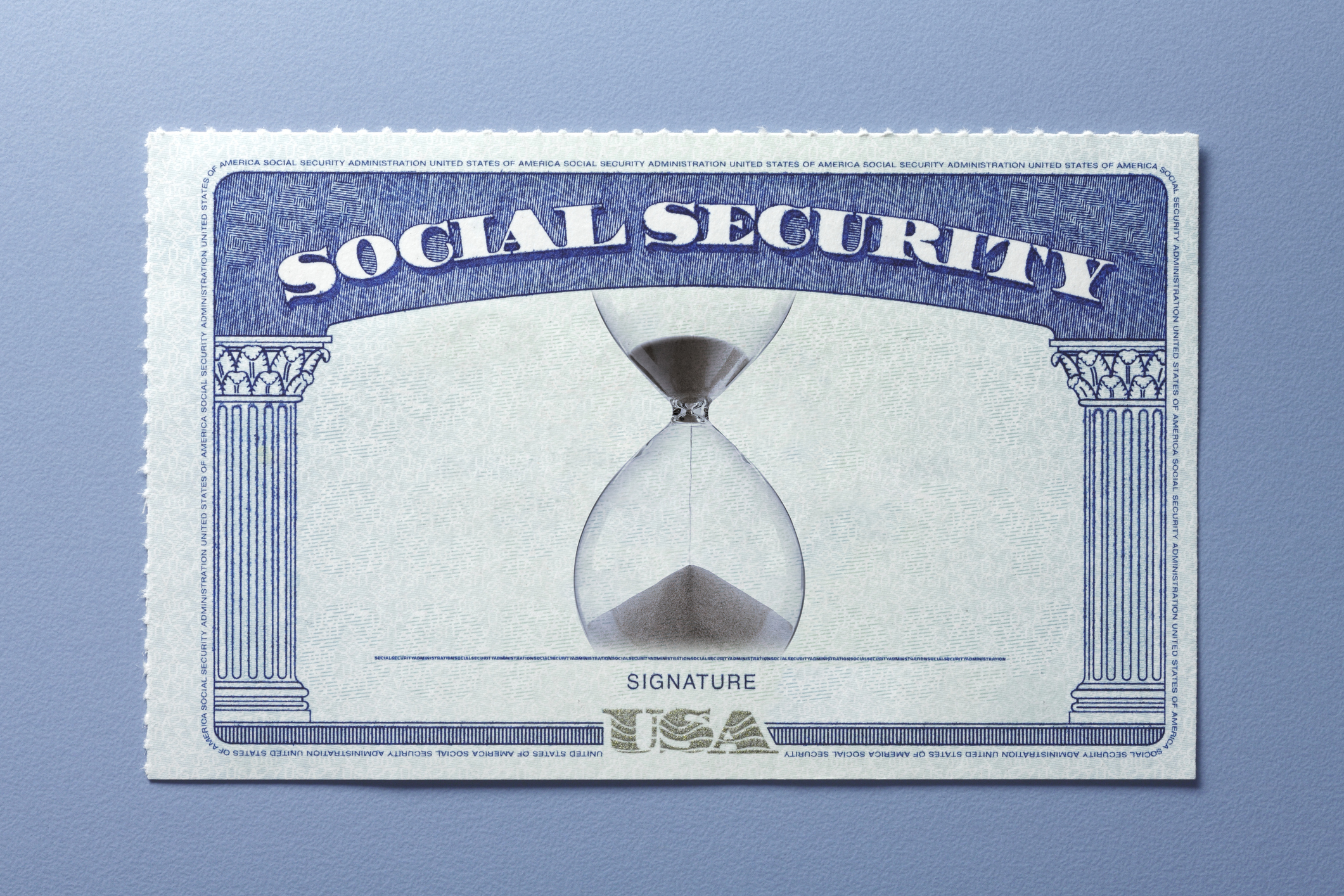Five Social Security Myths That Can Cost You
Before you collect Social Security benefits, make sure you don't believe any of these falsehoods.

Profit and prosper with the best of Kiplinger's advice on investing, taxes, retirement, personal finance and much more. Delivered daily. Enter your email in the box and click Sign Me Up.
You are now subscribed
Your newsletter sign-up was successful
Want to add more newsletters?

Delivered daily
Kiplinger Today
Profit and prosper with the best of Kiplinger's advice on investing, taxes, retirement, personal finance and much more delivered daily. Smart money moves start here.

Sent five days a week
Kiplinger A Step Ahead
Get practical help to make better financial decisions in your everyday life, from spending to savings on top deals.

Delivered daily
Kiplinger Closing Bell
Get today's biggest financial and investing headlines delivered to your inbox every day the U.S. stock market is open.

Sent twice a week
Kiplinger Adviser Intel
Financial pros across the country share best practices and fresh tactics to preserve and grow your wealth.

Delivered weekly
Kiplinger Tax Tips
Trim your federal and state tax bills with practical tax-planning and tax-cutting strategies.

Sent twice a week
Kiplinger Retirement Tips
Your twice-a-week guide to planning and enjoying a financially secure and richly rewarding retirement

Sent bimonthly.
Kiplinger Adviser Angle
Insights for advisers, wealth managers and other financial professionals.

Sent twice a week
Kiplinger Investing Weekly
Your twice-a-week roundup of promising stocks, funds, companies and industries you should consider, ones you should avoid, and why.

Sent weekly for six weeks
Kiplinger Invest for Retirement
Your step-by-step six-part series on how to invest for retirement, from devising a successful strategy to exactly which investments to choose.
Nearly 70 million Americans rely on Social Security to supplement their retirement income. Still, when it comes to this important government benefit, it can get complicated.
After all, there are several different claiming strategies. Plus, the age at which you begin collecting benefits will have a direct impact on how much you’ll receive over your lifetime.
If you collect at age 62, you’ll get as much as 30% less than if you wait until your full retirement age (FRA), which is 67 for people born in 1960 and beyond. Hold off until 70 and you can expect to earn as much as 8% more for each year you delay.
From just $107.88 $24.99 for Kiplinger Personal Finance
Become a smarter, better informed investor. Subscribe from just $107.88 $24.99, plus get up to 4 Special Issues

Sign up for Kiplinger’s Free Newsletters
Profit and prosper with the best of expert advice on investing, taxes, retirement, personal finance and more - straight to your e-mail.
Profit and prosper with the best of expert advice - straight to your e-mail.
However, there are several myths surrounding Social Security that can cost you thousands of dollars in lost benefits if they cause you to collect earlier than you should.
The good news is, we are here to dispel those myths. From taxes on Social Security to the health of the Social Security trust fund, here’s a look at five myths and the truth behind those falsehoods.
Myth # 1: There is no longer tax on Social Security

There was talk of ending federal taxes on Social Security benefits in earlier versions of the One Big Beautiful Bill tax bill. But did the final legislation include an end to Social Security taxes?
The Truth
Unfortunately, that didn’t end up in the final legislation, and as it stands, up to 85% of SS income can be taxed depending on how much you make.
If your combined income, which includes half of SS benefits, adjusted gross income (AGI) and any tax-exempt interest, exceeds $25,000 for individuals or $32,000 for couples, up to 50% of benefits can be taxed; above $34,000 (individuals) or $44,000 (couples), up to 85% can be subject to tax. According to the Social Security Administration (SSA), about 40% of recipients pay taxes on a portion of their benefits, compared to only 10% back in 1984.
The bill does include a bonus $6,000 standard deduction for people 65 and older, which will be available from 2025 through 2028. It's only available to those with modified adjusted gross income (MAGI) up to $75,000 (single filers) and $150,000 (joint filers), then phases out above those limits, completely phasing out at $175,000 (single filers) and $250,000 (joint).
Myth #2: Social Security is going away

Social Security is facing insolvency, which many people wrongly think means it will eventually stop paying benefits. To avoid losing out, some recipients have begun to claim Social Security earlier than previously planned.
It’s a real problem that the SSA highlighted this past spring, reporting in late April that it saw a "dramatic increase" in the number of Americans filing for initial SS benefits since January. This increase was across age groups and from high earners to low-income workers.
The Truth
Without a doubt, the program is facing a financial shortfall. If nothing is done, the Old-Age and Survivors Insurance Trust Fund that pays Social Security retiree benefits is projected to run out in the first quarter of 2033. If this comes to pass, benefits would face a 23% cut, and beneficiaries would then receive 77% of their benefits.
"I do not think the depletion of the trust fund reserves in 2033 is the only, or most important determining factor in deciding when to claim," Martha Shedden, president and co-founder of the National Association of Registered Social Security Analysts, told Kiplinger. She cautions that leaping to file earlier than planned can have long-term consequences.
"Americans claiming their Social Security benefits earlier leads to a significantly reduced monthly income that they rely on in their later years," she says. "Retirement benefits collected at age 62 are 30% lower than if collected at FRA and 76% lower than if collected at age 70."
Shedden points out that claiming your benefit too early will compound the calamity of a forced reduction in benefits. "What is most important is to understand that if NOTHING is done to improve the Social Security finances, about 80% of benefits would still be paid starting in 2034. So, collecting 80% of a higher benefit for the future years ahead is better than collecting 80% of a lower benefit."
Myth #3: You can't calculate your Social Security benefits

Part of retirement planning is knowing how much you’ll receive in Social Security benefits each month. Some people think there is no way of calculating that, and as a result, tend to overestimate how much they’ll get once they retire. That can set them up for a retirement shortfall when they do stop working.
It makes sense they would think there’s no way to tell. There’s a lot that goes into calculating your SS benefits, including earnings history over the 35 highest-earnings years, your work duration, and full retirement age, depending on when you were born.
The Truth
While you may not be able to get the down-to-the-penny payment, you can calculate how much your monthly benefits will be or get an estimate from the SSA.
To calculate your benefits, follow our six-step guide here. To find an estimate, download (Form SSA-7004) from the SSA's website, which has an estimate of your benefit at age 62, at your full retirement age (FRA), and at age 70, based on your current work history.
Estimating your benefits in isolation from other factors "...is possible for a single person who has never been married, divorced or widowed," Shedden says. However, it gets more complicated when you start to factor in other people and other possible sources of benefits, she says.
"The coordination of benefits between spouses, ex-spousal benefits, survivor benefits, and possible minor or disabled children is what makes the claiming decision less precise," she says.
This is the point where you might want to engage a financial professional or look for some computational assistance.
Myth # 4: You can’t increase your Social Security payout

Your Social Security benefit is based on how much you earned over your working lifetime, so people assume that, regardless of when they begin collecting it, they will get the same amount. They don’t realize there are ways to increase their maximum payout and end up leaving money on the table as a result.
The Truth
There are several ways to maximize your SS benefits, and the biggest one is delaying the age at which you begin collecting. The longer you wait, up until age 70, the more you’ll earn, to the tune of as much as 30%.
Another way to increase your benefits is to work longer. SS is based on the 35 highest-earning years. If you opt to work longer during higher earning years, you’ll get more. You may also be entitled to more if you spot errors on your Social Security earnings record. It's important to review it regularly and contact the SSA if there is any inaccurate data that will negatively impact your payments.
Myth #5: You can always collect your ex’s Social Security benefits

Divorce may be the end of the coupling, but finances can remain intertwined for life, especially if you have children. Some people think Social Security also falls into that category, and expect to automatically be entitled to a portion of their ex’s benefits. They also assume they’ll get their own plus some of their spouse’s Social Security.
The Truth
While that may be true, there are some caveats you have to meet, including the following:
-You have to have been married for ten years or more
-You need to be 62 or older
-You have to be currently unmarried
-Your ex must be eligible for Social Security benefits
-Your SS benefit must be less than the benefit you’ll receive from your ex.
If your divorce is recent, you may have to wait. "Your ex must be collecting Social Security benefits for you to collect off of their earnings record, unless you have been divorced for two or more years," says Shedden. After two years, you can collect at any time you are eligible," she says.
Knowledge is power
Social Security is an important retirement tool that millions of Americans rely on, so it's not surprising that there are many myths out there that could harm you.
Understanding how this benefit works, when to collect, and learning the different claiming strategies are the best ways to ensure you are maximizing your payout. If you are unsure, seek help from a trusted financial adviser or the SSA. The last thing you want to do is make a bad decision that will negatively impact your benefits over your lifetime.
Related content
Profit and prosper with the best of Kiplinger's advice on investing, taxes, retirement, personal finance and much more. Delivered daily. Enter your email in the box and click Sign Me Up.

Donna Fuscaldo is the retirement writer at Kiplinger.com. A writer and editor focused on retirement savings, planning, travel and lifestyle, Donna brings over two decades of experience working with publications including AARP, The Wall Street Journal, Forbes, Investopedia and HerMoney.
-
 Nasdaq Leads a Rocky Risk-On Rally: Stock Market Today
Nasdaq Leads a Rocky Risk-On Rally: Stock Market TodayAnother worrying bout of late-session weakness couldn't take down the main equity indexes on Wednesday.
-
 Quiz: Do You Know How to Avoid the "Medigap Trap?"
Quiz: Do You Know How to Avoid the "Medigap Trap?"Quiz Test your basic knowledge of the "Medigap Trap" in our quick quiz.
-
 5 Top Tax-Efficient Mutual Funds for Smarter Investing
5 Top Tax-Efficient Mutual Funds for Smarter InvestingMutual funds are many things, but "tax-friendly" usually isn't one of them. These are the exceptions.
-
 Quiz: Do You Know How to Avoid the 'Medigap Trap?'
Quiz: Do You Know How to Avoid the 'Medigap Trap?'Quiz Test your basic knowledge of the "Medigap Trap" in our quick quiz.
-
 We Retired at 62 With $6.1 Million. My Wife Wants to Make Large Donations, but I Want to Travel and Buy a Lake House.
We Retired at 62 With $6.1 Million. My Wife Wants to Make Large Donations, but I Want to Travel and Buy a Lake House.We are 62 and finally retired after decades of hard work. I see the lakehouse as an investment in our happiness.
-
 Social Security Break-Even Math Is Helpful, But Don't Let It Dictate When You'll File
Social Security Break-Even Math Is Helpful, But Don't Let It Dictate When You'll FileYour Social Security break-even age tells you how long you'd need to live for delaying to pay off, but shouldn't be the sole basis for deciding when to claim.
-
 I'm a Wealth Adviser Obsessed With Mahjong: Here Are 8 Ways It Can Teach Us How to Manage Our Money
I'm a Wealth Adviser Obsessed With Mahjong: Here Are 8 Ways It Can Teach Us How to Manage Our MoneyThis increasingly popular Chinese game can teach us not only how to help manage our money but also how important it is to connect with other people.
-
 Global Uncertainty Has Investors Running Scared: This Is How Advisers Can Reassure Them
Global Uncertainty Has Investors Running Scared: This Is How Advisers Can Reassure ThemHow can advisers reassure clients nervous about their plans in an increasingly complex and rapidly changing world? This conversational framework provides the key.
-
 5 Ronald Reagan Quotes Retirees Should Live By
5 Ronald Reagan Quotes Retirees Should Live ByThe Nation's 40th President's wit and wisdom can help retirees navigate their financial and personal journey with confidence.
-
 We're 78 and Want to Use Our 2026 RMD to Treat Our Kids and Grandkids to a Vacation. How Should We Approach This?
We're 78 and Want to Use Our 2026 RMD to Treat Our Kids and Grandkids to a Vacation. How Should We Approach This?An extended family vacation can be a fun and bonding experience if planned well. Here are tips from travel experts.
-
 Should You Jump on the Roth Conversion Bandwagon? A Financial Adviser Weighs In
Should You Jump on the Roth Conversion Bandwagon? A Financial Adviser Weighs InRoth conversions are all the rage, but what works well for one household can cause financial strain for another. This is what you should consider before moving ahead.

